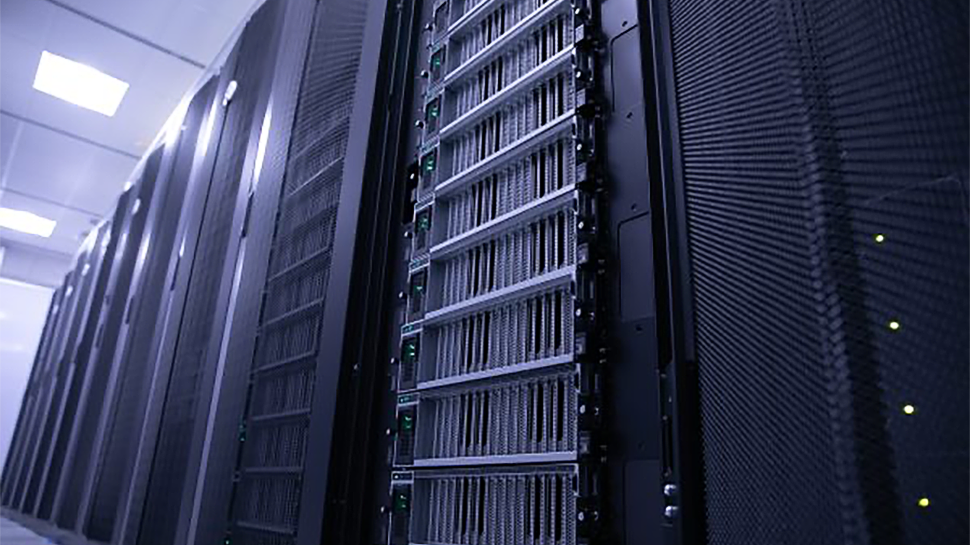Russia Plans to Use Banned Nvidia H100 GPUs to Build Top 10 Supercomputers
Plan hinges on ability to obtain the accelerator hardware.

Russia has an ambitious plan to build up to ten supercomputers by 2030, each potentially housing 10,000 to 15,000 Nvidia H100 GPUs. From a computing perspective, this would provide the nation with performance on a scale similar to that which was used to train Chat GPT. Formidable in general, a system featuring so many H100 GPUs could produce some 450 FP64 TFLOPS, which is half of an ExaFLOP, a level of supercomputer performance that has only been achieved by the U.S., so far.
Spearheaded by the 'Trusted Infrastructure' team, the Russian project promises to push the boundaries of computational capabilities, with each machine potentially boasting between 10,000 to 15,000 Nvidia H100 GPUs. However, the desired compute AI and HPC GPUs would come from Nvidia, an American company.
The war Russia started in Ukraine had led the U.S. to restrict tech exports to Russia. creating a gaping hole in the procurement strategy for processors like Nvidia GPUs. Thus, the question that hangs in the air is: how could Russia bypass these restrictions since it would seem impossible to smuggle thousands of valuable AI and HPC GPUs?
The financial landscape also presents a set of challenges for the Russians. With today's hardware prices, the project's budget would be about $6 billion, making it a colossal investment. However, rapid advancements in technology have the potential to reduce costs in the coming years. Perhaps by 2030, these systems could cost $500 - $700 million.
Russia's most powerful supercomputer is Chervonenkis, it is owned by Yandex and is equipped with 1,592 nodes featuring Nvidia A100 GPUs. It ranks 27th in the world for computational power, with a performance of 21.53 PetaFLOPS. Three of the seven Russian supercomputers belong to Yandex (Lyapunov, Chervonenkis, and Galushkin), two to Sberbank (Christofari and Chrisofari Neo), and one each to MSU (Lomonosov) and MTS (GROM). All of them operate on Nvidia GPUs from previous generations.
Currently, Russia has just seven supercomputers that rank in the global top 500. For comparison: the USA has 150 machines on the list, China has 134, Germany has 36, and Japan has 33. As of June 2023, Russia was 12th in the rankings.
Get Tom's Hardware's best news and in-depth reviews, straight to your inbox.

Anton Shilov is a contributing writer at Tom’s Hardware. Over the past couple of decades, he has covered everything from CPUs and GPUs to supercomputers and from modern process technologies and latest fab tools to high-tech industry trends.
-
George³ In 2030, the Nvidia H100 will be an archaeological relic that can be dug up by treasure hunters somewhere in a hidden treasure cave.Reply -
helper800 Reply
They will be just as performant as they are today, and even though newer faster things will have been created since, that does not take away from what a group of highly motivated individuals can do with 10-15k H100s.George³ said:In 2030, the Nvidia H100 will be an archaeological relic that can be dug up by treasure hunters somewhere in a hidden treasure cave. -
mac_angel One, I'm wondering why Russia is broadcasting these kinds of ideas/plans out in the open while they are at war and are not suppose to be able to import them.Reply
Two, there's an easy way around the "import" problem, if they really wanted them. Just not something I'm going to post online.
It does kinda suck that some of these restrictions kinda hurt the world at large. The creator of MSI Afterburner is from Russia, and him upgrading that has gotten complicated. -
George³ Reply
It's just an advertisement for Nvidia. With an unusual layout.mac_angel said:One, I'm wondering why Russia is broadcasting these kinds of ideas/plans out in the open while they are at war and are not suppose to be able to import them.
Two, there's an easy way around the "import" problem, if they really wanted them. Just not something I'm going to post online.
It does kinda suck that some of these restrictions kinda hurt the world at large. The creator of MSI Afterburner is from Russia, and him upgrading that has gotten complicated.
There is not even a hint as to the origin of the intent information. Whether Russia as a state uttered it, through its government spokesman, or whether it came from declared claims of private companies that someone summarized. -
watzupken Reply
You need to remember that while they cannot buy directly from Nvidia since they are a sanctioned nation, but it does not stop them from buying from partner nations. US can limit Nvidia from selling to China, Russia, etc, but to stop Nvidia from selling to half of the world that are friendly nations to both China and Russia, I am not sure if that is possible. They will probably put Nvidia out of business.mac_angel said:One, I'm wondering why Russia is broadcasting these kinds of ideas/plans out in the open while they are at war and are not suppose to be able to import them.
Two, there's an easy way around the "import" problem, if they really wanted them. Just not something I'm going to post online.
It does kinda suck that some of these restrictions kinda hurt the world at large. The creator of MSI Afterburner is from Russia, and him upgrading that has gotten complicated. -
peachpuff Reply
Broadcasting and actually going through with it are two different things in russia, they say a lot of things but nothing happens. T14 armatas, medvedev nuking everyone, super soldiers... list goes on.mac_angel said:One, I'm wondering why Russia is broadcasting these kinds of ideas/plans out in the open while they are at war and are not suppose to be able to import them.